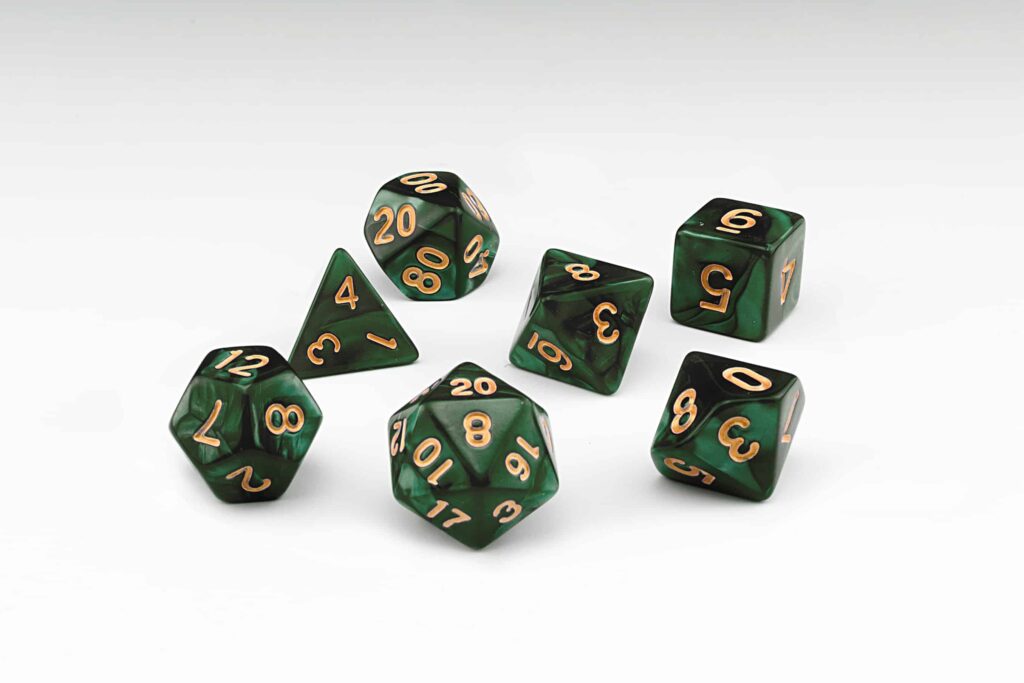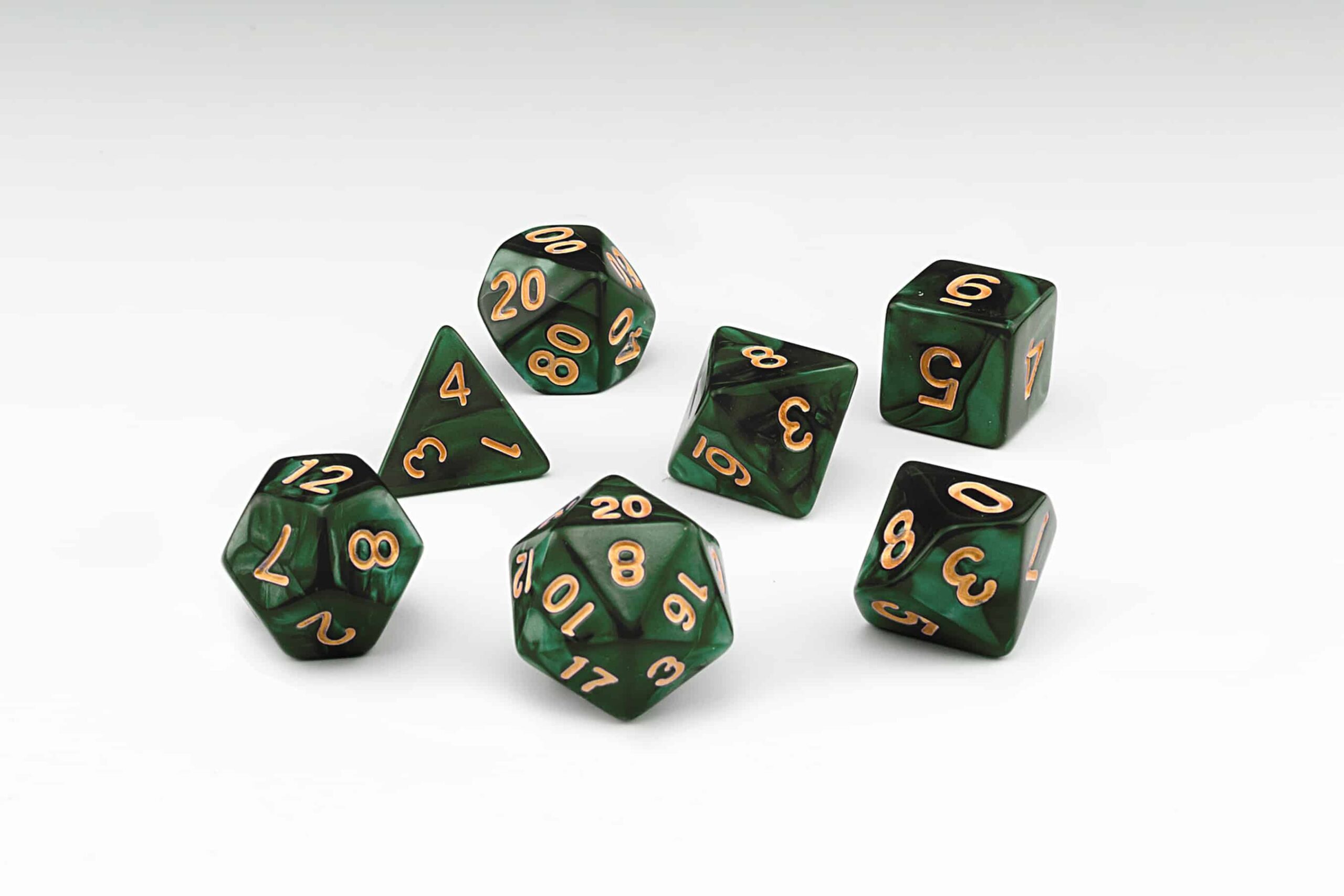I’ve always been interested in running some sort of Role Playing Game (RPG). In the past, I’ve participated in a Dungeons and Dragons (D&D) setting where the most (but not all!) stories revolve around swords and sorcery. While most D&D games are set in some sort of medieval background where modern inventions are not really known (guns, electricity, etc), not all games have to be, but it does seem to be the easiest setting to incorporate magic without breaking two key factors that make these types of games awesome: immersion and suspending belief. There are other systems as well, which I will dive into in later posts.

I’ve played role-playing games (RPG) before. Other than computer games like Fallout and Skyrim, I’ve always enjoyed the few opportunities I’ve had to play Dungeons and Dragons (D&D) and World of Darkness (WoD). I find specific appeal to the in real-life (IRL) RPGs as they are less of a game, in the typical sense, and more of a collective story-telling experience. This has always intrigued me and I wish I’ve had more opportunities to play IRL RPGs. Unfortunately, all of my experiences have been from college, almost two decades ago… But, of those experiences, I have treasured memories of the games and certain scenarios that unfolded. I like to think the Game Master (GM), or alternatively the Dungeon Master (DM), had to come up with something on the fly as the events unfolded and didn’t specifically plan for these scenarios to unfold in the way they did.
In my D&D game, I played a Barbarian class hero. These are what you would typically think of when you hear the word barbarian: brute strength, low intelligence. My character, consequently, did not make the smartest choices during gameplay. This is where the role-playing aspect of the game takes hold, as I got to make stupid decisions and point to my character sheet and say “But I’m dumb! My character wouldn’t know that!”. I recall one moment where we were sneaking through a cellar on the way to find something I’ve since forgotten, but was the climax of the one-shot. We came across a rack of bottles full of an amber liquid. The GM at the time described them in a way that sounded like they might have been drinkable, but could definitely also be deadly if consumed. My interpretation, or rather, my character’s interpretation was “I’m thirsty, this looks like a drink” and, being of low intelligence, drank it without hesitation. Now, if you’re not familiar with the Barbarian class, these characters can drink. They typically have a ton of health and a higher than average constitution. Strong drinks don’t normally affect Barbarians as they would other classes, due to this high constitution. Barbarians are typically also at the front lines of combat wielding some sort of weapon they swing around to do damage. After drinking this liquid, my Barbarian became immediately plastered. What would have probably killed other players, only made my Barbarian almost ineffective for combat. We did prevail, but it became much more difficult for our party as their main meat-shield couldn’t properly swing a hammer. This lead to a challenging climax encounter, but we ultimately prevailed and other characters that would not have normally had the spot-light, definitely were thrust into it. Our rogue (think sneaky assassin) ended up having to do the majority of combat while my barbarian kept the enemy… uh… distracted… with insults. We did eventually win in the end, but what stuck around was the complete upheaval of the story through a single character’s actions. This is an awesome experience. It is an experience you can’t get with a video game RPG where the story is set and no matter what you do, the story cannot be derailed or change.
My World of Darkness campaign was set in the Vampire: The Masquerade setting. Within this setting, there are many classes of Vampires. I played a Malkavian vampire. This class suffers from schizophrenic-like symptoms and requires quite a bit of role-playing as the typical thread within the setting revolves around intrigue rather than combat. In fact, combat can be lethal to players and a more diplomatic solution is almost always preferred. I was definitely outside of my comfort-zone for this one, but that made it just that more memorable. This setting can take place during any time period, as the general background has Vampires existing throughout history. Our campaign was set in a more modern setting, but fizzled out on a cliff-hanger. I recall fond memories of moments within the story where characters would do some seemingly innocuous thing with hilarious, and memorable, results. When the campaign fizzled, we were sneaking through a night club to find some sort of dirt on a key person or group within the story. While I don’t recall the actual plot details of the campaign, I do remember one character lighting a cigarette on the second story while we were trying to figure out what to do next. Now, this seems pretty innocuous, but Vampires fear fire. The character that lit the cigarette had enough background information and justification that this would not have affected her. But, everyone else? Well, we had to make a saving throw to determine if this little bit of fire had an affect on us, or if we were able to stand out ground and overcome our feat. We all failed the saving throw. The GM described what happened next… we ran to the nearest exit. This exit happened to be a window. Did I mention we were on the second story? Half of us failed the second saving throw for landing gracefully. A lot of noise was made in the shattering of the window and the failed landing. The guards we previously snuck by were alerted. We ended that session there and never reconvened to continue the story. What happened after is lost to history.
This type of collective story telling is what drew me into wanting to play these types of games. The story is the meat and potatoes of the experience. The system (or mechanics) are the fork and knives. But, in this analogy, everyone is simultaneously making and eating the meat and potatoes. The experience changes by player actions and the story and plot evolve on the fly. A good GM knows this and a good GM lets it happen. A good GM is flexible and lets the story go where it needs to. A good GM knows how to fit the planned plot into the current story (somehow) and knows what to change or adapt to within the plot to have it fit the story.
In my quest to participate in an RPG and chase this collective storytelling experience, I’ve developed a campaign. I’ve found players. I’ve started GMing! This site will catalog what I’ve learned. It will catalog how I’ve done things. It will track what works and what doesn’t work. It will hopefully become a guide for new players-turned-GMs. And I hope it will demystify the almighty role of Game Master.
